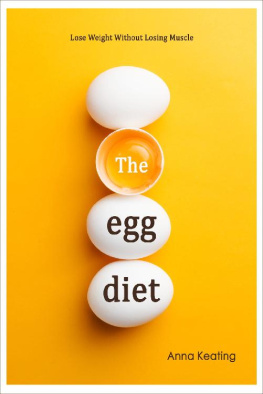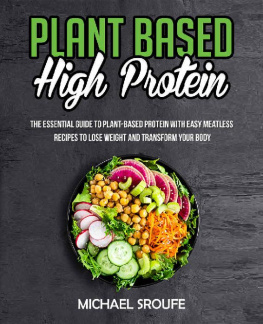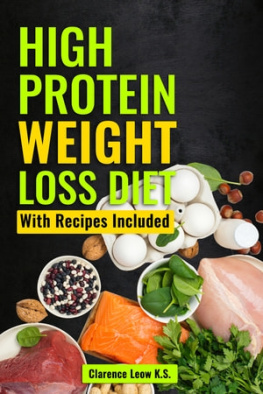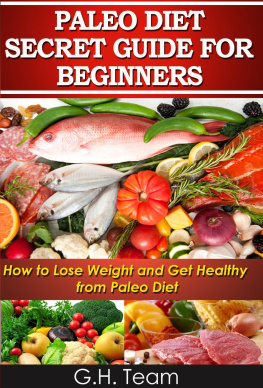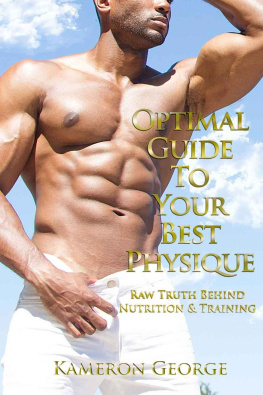The Egg Diet
Lose weight without losing muscle
Contents
diet where you can only eat eggs?
T he title of this diet already gives it away; the Egg Diet is a diet in which eggs play the leading role. But are you only allowed to eat eggs? The answer is no, there can also be other things on the program such as vegetables, fruit, salad, meat, and fish. This diet is ideal if you want to lose weight and do not want to eat sugars. You can also use it to kick off a sugar addiction and then follow a healthy balanced diet.
The Egg Diet is a diet that is based on eating as few carbohydrates as possible and a lot of protein instead. The number of calories you can take is very low, which is why it is also called a crash diet and therefore, it is recommended to follow the diet for no more than one week. Are you curious what exactly the egg diet entails and what the advantages and disadvantages are? Then this book is for you.
Eggs are healthy for you!
A s you know, eggs are pretty cheap and are very high in nutritional value, providing 18 vitamins and minerals. On average, the macronutrient content of eggs includes low carbohydrates and about 12 grams per 100 grams of protein and lipids, most of which are monounsaturated and supply the diet with several essential nutrients (see table below).
Component (Unit) | Amount | Component (Unit) | Amount |
Egg Shell (%) | 10.5 | Calcium (mg) | 56.0 |
Egg Yolk (%) | | Magnesium (mg) | 12.0 |
Egg White (%) | 58.5 | Iron (mg) | 2.1 |
Water (g) | 74.5 | Phosphorus (mg) | 180.0 |
Energy (Kcal) | | Zinc (mg) | 1.44 |
Protein (g) | 12.1 | Thiamine (mg) | 0.09 |
Carbohydrates (g) | 0.68 | Riboflavin (mg) | 0.3 |
Lipids (g) | 12.1 | Niacin (mg) | 0.1 |
Saturated fatty acids (g) | 3.3 | Folic acid (g) | 65.0 |
Monounsaturated fatty acids (g) | 4.9 | Cyanocobalamin (g) | 66.0 |
Polyunsaturated fatty acids (g) | 1.8 | Pyridoxine (mg) | 0.12 |
Cholesterol (mg) | | Retinol equivalents (g) | 22.7 |
Iodine (g) | 12.7 | Potassium (mg) | |
Tocopherols (g) | 1.93 | Carotenoids (g) | |
Selenium (g) | | Cholecalciferol (g) | 1.8 |
Antioxidants
Some of these nutrients, such as zinc, selenium, retinol, and tocopherol, are deficient in people consuming a western diet. These ingredients are known to be antioxidants, meaning that they protect your body from aggressive substances that are created within your body in different processes. When you have too high levels of these substances, they can possible cause cancer and cardiovascular disease. By consuming eggs, you will get enough antioxidants, to protect your body from these aggressive substances and other harmful processes that occur in the body.
Fatty acids
Fat has always been a major point of discussion when it comes to healthy food. One says that you have to limit it, the other says that you can eat it fully. Nowadays, science says that there are healthy fats and bad fats. But what are healthy fats? Is saturated fat bad for you? How much fat can you eat per day?
Fats (or triglycerides) are nutrients necessary for good health. They are fuel and provide important vitamins and fatty acids that are essential for our body. Fats are used, among other things, for energy, storage, insulation and as a building material for hormones.
Fats can be distinguished as follows:
* unsaturated fats (omega-3, -6, -9)
* saturated fats
* trans fats
Unsaturated fat
Unsaturated fat is also known as "healthy fat" and consists of three different fatty acids: omega-3 (linolenic acid), omega-6 (linoleic acid) and omega-9 (oleic acid). These are essential fatty acids that our bodies cannot make themselves and which we, therefore, have to get through our diet.
What is important here is that especially the correct ratio of these fats in our food is beneficial to our health. A bad relationship, in which we get too much omega-6 and too few omega-3 fatty acids, can cause inflammation in the body and be accompanied by all sorts of health problems. A good ratio between omega-3 and omega-6 is 1: 4 but in our current diet, this is often 1:15 or even more. This is the reason why most eggs are now fortified with omega-3, to ensure that there is a good ratio of these fatty acids in the eggs.
More unsaturated fats (especially omega-3) in our diet have a beneficial effect on our health. When more saturated fats are replaced by unsaturated fat, there is less risk to your health. The best sources of omega-3 and omega-6 (in a good ratio) are found mainly in vegetable products such as eggs, nuts, seeds, avocados, olives and in oily fish.
Saturated fat
Saturated (except for coconut oil, palm fat and cocoa butter) is particularly common in animal products. You can recognize saturated fats by their solid form (think of butter) at room temperature. There has been a lot of confusion about saturated fat. Saturated fat has been known for a long time as "the unhealthy fat" and eating too much-saturated fat would be related to high cholesterol, high blood pressure, and cardiovascular disease.
This bad reputation is slowly changing because there are many different factors that play a part in these risks and may not be directly related to the intake of saturated fat. That said, it is still better to in general choose unsaturated fats and make sure that no more than 10% of your daily diet consists of saturated fat.
Saturated fats are mainly in cheese, margarine, whole dairy, ice cream, eggs, butter, meat, pastry, pie, chips, and biscuits.
Trans fats
These are (hydrogenated or hardened) fats that you mainly find in all fried products, pretzels, chips, biscuits, pastries, margarine, low-fat margarine and many frozen meals (eg pizzas). Trans fats are a very unhealthy and a harmful form of fat, which not only increases the risk of cardiovascular disease but is also carcinogenic.
Trans fats are a modified form of saturated fat, which is made from unsaturated fats. By heating excessively unsaturated fats, it is possible to bake at high temperatures (for example frying). Trans fats are, however, very harmful and do not belong in our food. Avoid these fats as much as possible.
Iodine
Iodine is best known to most people as the tingling reddish-brown substance that you put on abrasions after a fall. Not surprising, because iodine is disinfecting in combination with water, for example. But iodine is also very important to have in your diet.
Iodine is a trace element, which means that we only need very small quantities (micrograms) of it. The mineral plays an important role in the production of our thyroid hormones. These hormones are necessary for good growth, the development of the nervous system and our metabolism.
In case of an iodine deficiency, your thyroid gland starts to slow down and swell, causing a thick lump in the neck. This is also called a goiter or crop. During pregnancy and in our first years of life, a deficiency of iodine can cause impaired cognitive development. Iodine deficiency is not very common, as your thyroid contains a large stock of iodine. A deficiency will only get noticed after a few years of being deficient. Too high iodine intake is very rare and most people can tolerate this without problems.
Next page
